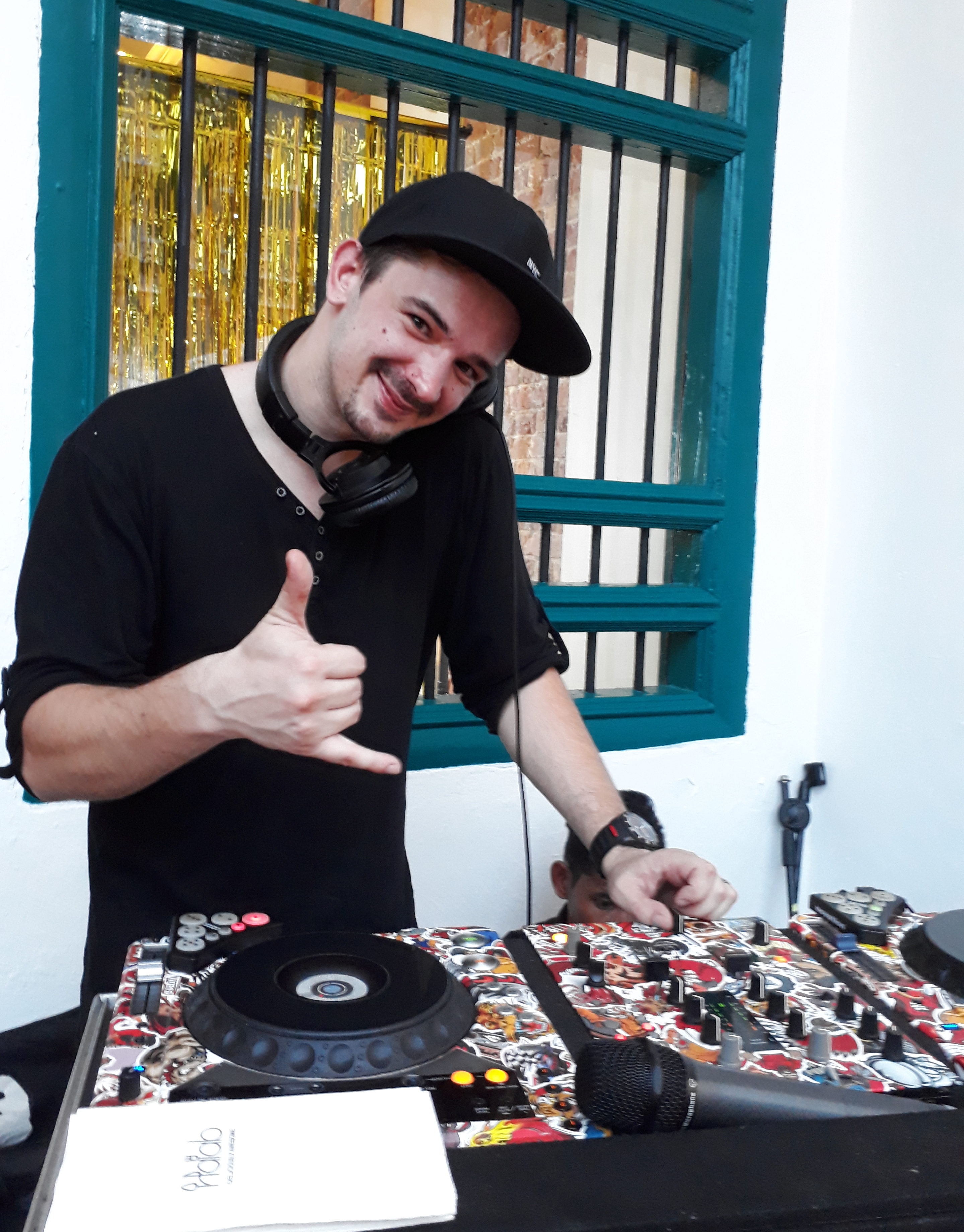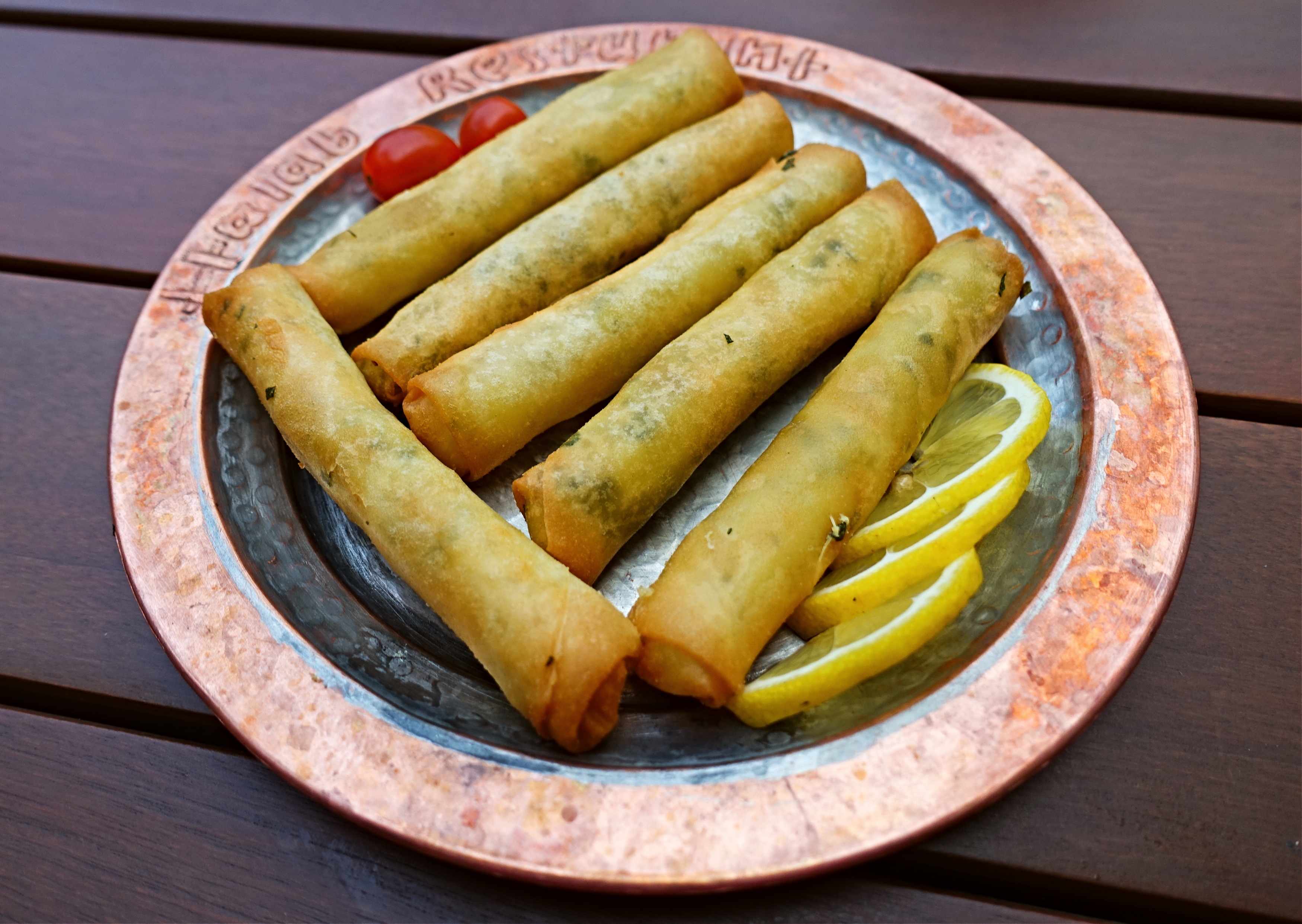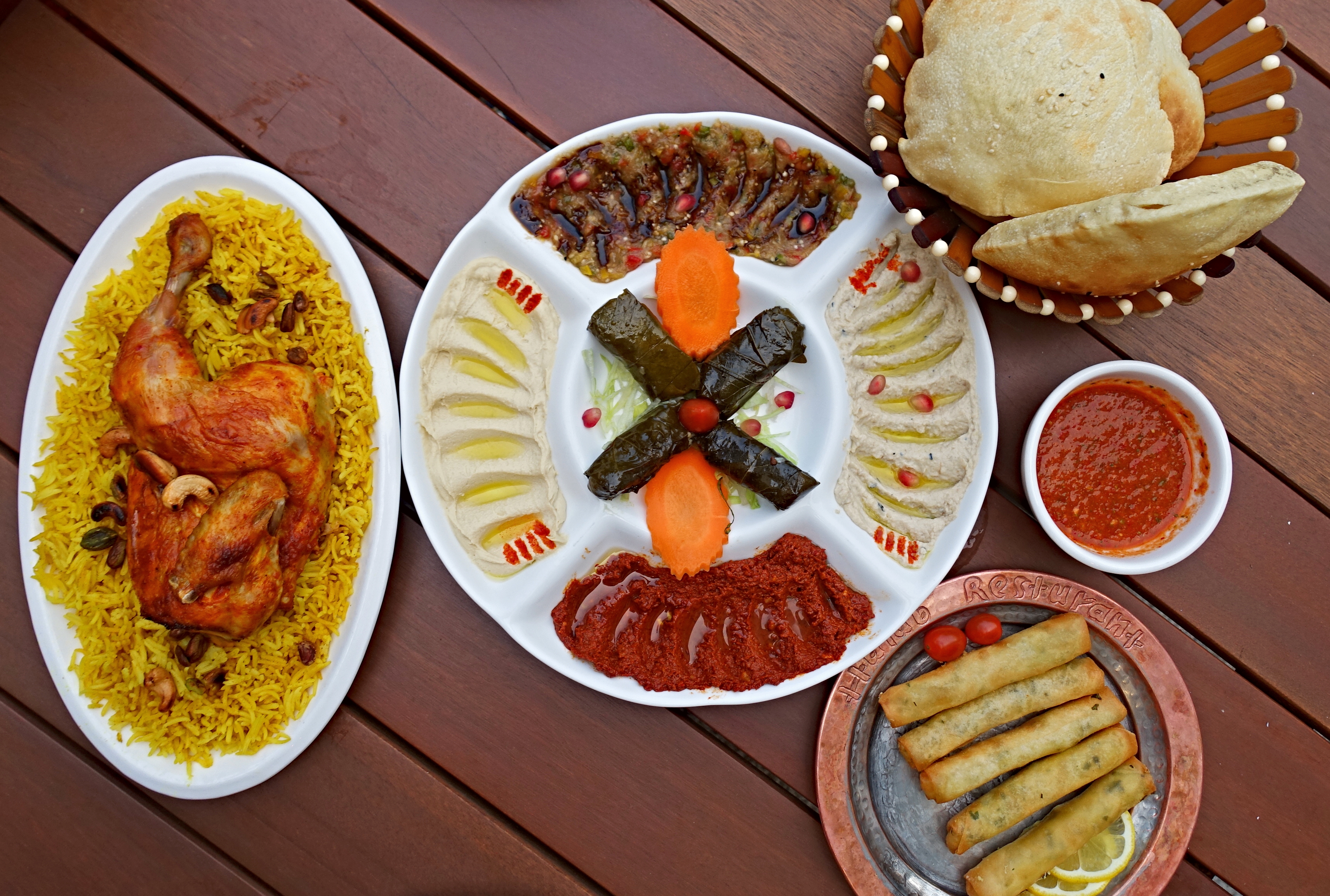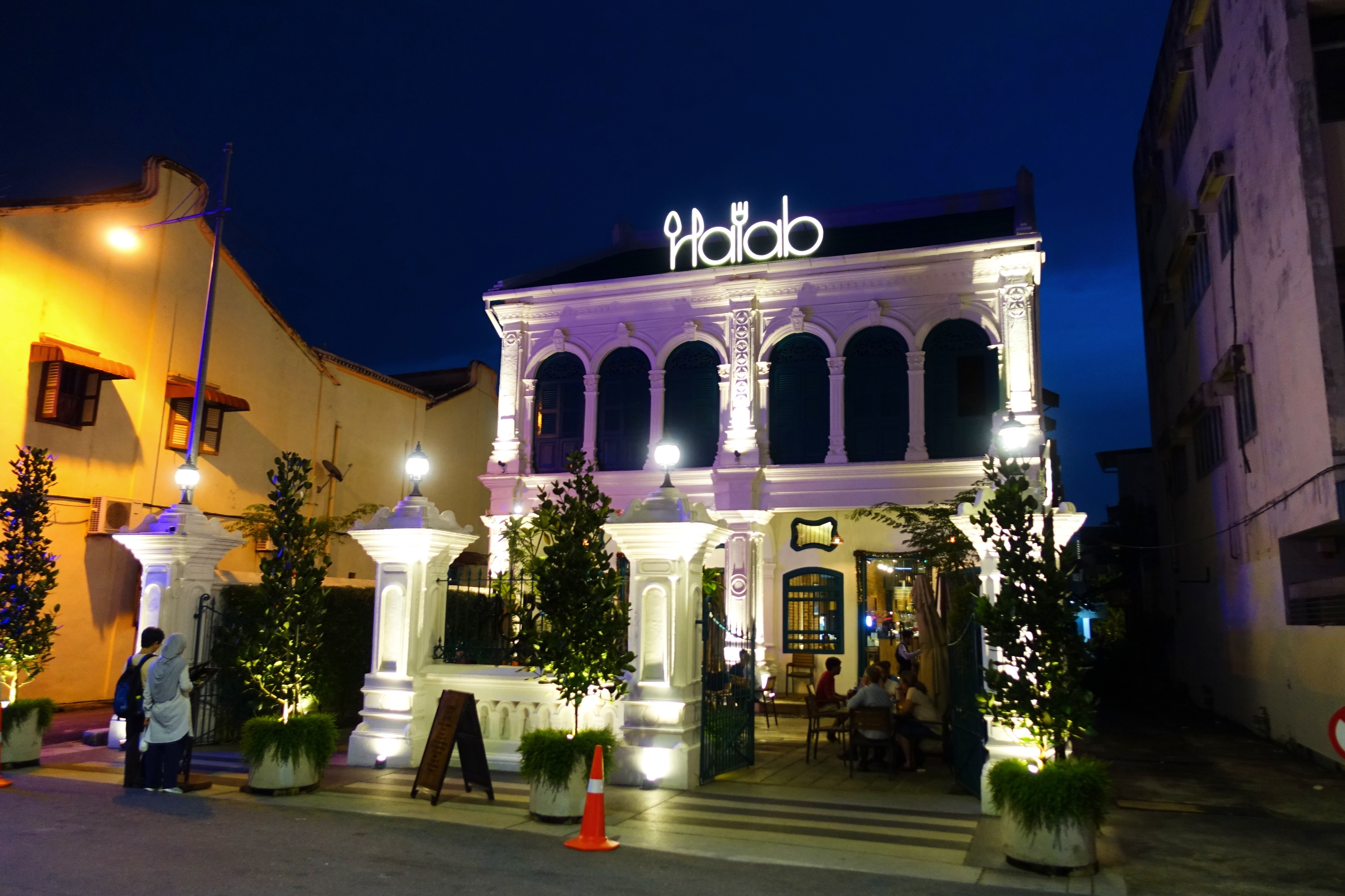Penang’s latest Middle-Eastern restaurant is located at 381 Chulia Street, formerly Reggae Mansion. But a million dollar makeover has rendered the place virtually unrecognizeable from its previous incarnation.
Halab, in a departure from other Middle-Eastern restaurants in Penang which are mainly Lebanese, offers food from Aleppo, Syria, instead. In fact, we understood that Halab is actually the ancient Arabic term for the medieval city of Aleppo which, sadly, has pretty much been destroyed by the still on-going Syrian civil war.
It is no wonder that some of the most talented Syrian chefs from Aleppo are now cooking here, churning out dishes which definitely taste a cut above other Middle-Eastern eateries in George Town. Syrians and other Arabs in George Town are their base clientele, but many Penangites are also turning up to sample its offerings, including one of the largest selection of Middle-Eastern sweets I’d seen this part of town.



Appetiser platter that we tried:
Clock-wise from top: Moutabal (mashed eggplant with tahini & condiments), Baba Ghanoush (Levantine mashed eggplant, parsley, green pepper, red pepper & condiments), Houmous (Levantine mashed chickpeas & condiments), Muhammarah (spicy red pepper dip from Aleppo, Syria).
Middle: Warak Enab (grape leaves with rice, minced beef and lemon juice).
We also tried another appetiser platter with fattoush - chopped coriander salad, which was also very well-prepared, served with pita bread.
Maajoqah - minced lamb patties, filled with green & red peppers, cheese, mushrooms and nuts. These were simply scrumptious, and I couldn’t get enough of it. The minced lamb was piquant, gently spiced with cinnamon, cumin & coriander. The melted cheese filling with onions & crunchy peppers were delicious.
Our mains:
Maklouba This is a Levantine dish of grilled chicken and eggplants, served on a bed of fragrant, spiced rice, studded with peanuts.
Shish tawook - grilled skewers of chicken, accompanied by grilled tomatoes and onions, fresh, crunchy salad, and served with a creamy garlic dip.
Everything was freshly-prepared upon order a la minute. Lovely smokey flavours from the barbecued meats.
Hot, milky ginger tea was delicious, served together with the oddly-named vulgar dessert (pronounced ‘vool-gah’) which was described as being made up of dried milk, orange blossom water and liquid starch. It was not too sweet and tasted more pleasant than its description.
Those with a sweet tooth can opt for one of the platters of baklava and other sugar/syrup-laden sweets on offer.
The place tends to get busier as the evening wore on:
Address
Halab
381, Chulia Street, 10200 George Town, Penang, Malaysia
Tel: +604-251 9550
Opening hours: 11am-4am daily (yes, they open till 4am in the morning to cater to Middle-Easterners’ fondness for socialising and shisha-smoking throughout the night).






























































